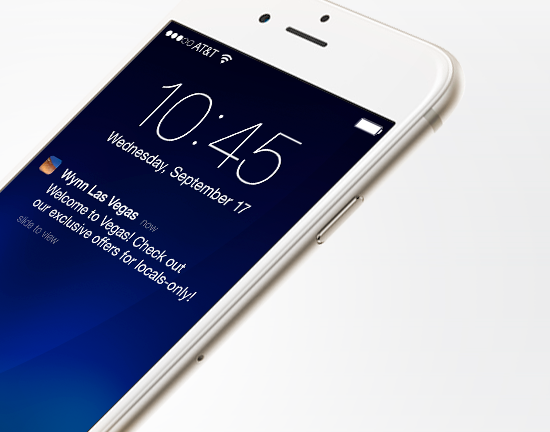Personally entitled, professionally lazy, technically gifted, and socially progressive are just a few of the labels applied to Americans born in the final 20 years of the 20th Century.
Volumes of market research have been devoted to determining exactly how true those descriptions are, but there’s at least but there are at least two attributes that aren’t up for debate:
1) Millennials embrace mobile devices and engage with them more than any other group
2) Millennials are now the largest generational segment in the U.S., representing more than a quarter of the total population.
As a result, catering to this pivotal customer segment has become a business priority for modern marketers. And for those stationed in the hospitality industry, smartphones open up a crucial line of communication.
TECH GUIDES TRAVEL EXPERIENCES
As anyone with an Instagram account can attest to, smartphones play a major role in how Millennials discover, coordinate, experience, and share their travel adventures. It’s no surprise, then, to see recent research from Oracle confirming hotels as a hub of mobile interaction.
Prior to arrival, 55% of Millennials have browsed a hotel website via smartphone while 45% have directly reserved a room using a smartphone.
Once at their destination, 24% check-in via mobile while 84% connect their device to the hotel’s WiFi during their stay.
ROOM FOR IMPROVEMENT REMAINS
The hospitality industry at large deserves credit for embracing mobility faster than most, but there is still plenty of work left to be done.
One of the more interesting findings from the Oracle survey revealed that just 12% of Millennials had ordered hotel room service via mobile device.
Initially, it might be tempting to explain that statistic as more a matter of luxury than technology – that Millennials balk at the cost of room service. But when framed against the fact that 39% of Millennials have ordered food delivery via smartphone in other contexts, it seems to suggest hotels may be fumbling an important opportunity.
That suspicion was confirmed by Millennial hotel workers themselves, one-third of which felt their employers “made bad use” of technology. Perhaps worse, only 15% indicated that their employers were receptive to staff feedback on technology issues.
WHERE DO APPS FIT IN?
The sum of those survey findings could feel discouraging to some, but for hotel marketers ready to embrace change, it has all the makings of an attractive opportunity for revenue growth..
The most powerful way to turn mobile into a competitive advantage is through the development of a dedicated app. When everything from booking rooms and massages to discovering attractions and directions can be accomplished from a single, portable interface, guests can’t help but be converted by the convenience. Every time they open a device with the hotel’s app installed, they will be greeted with the hotel logo introducing them to services they may not even have been aware of. And by integrating smart social media features, you’ll give loyal guests a stage to sing your praises and convince prospective customers. Thereby a mobile app becomes a way to engage customers prior to arrival, upsell them on services during their stay, and gives them an opportunity to advocate for the hotel brand following departure.
But hotel app development cannot be approached with a “build it and they will come” mindset. Considering that just 13% of the surveyed Millennials have used a hotel app to facilitate a trip, promotional efforts may still be the weak link in app strategy. As a result, hotels need to make sure any app they do create becomes the focal point of mobile marketing efforts moving forward.
